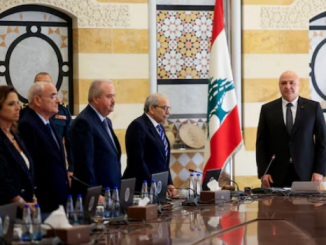
Khalid Sheikh Mohammed, a close confidant of Osama bin Laden and widely regarded as the architect of the 9/11 attacks, was captured on 1 March, 2003 in Rawalpindi, Pakistan, and transferred to the infamous Guantanamo Bay detention facility.
Published July 12, 2025
Nearly a quarter-century after the deadliest terrorist attack on American soil, the pursuit of justice for 9/11 has taken yet another dramatic turn. A U.S. federal appeals court has struck down a controversial plea deal involving Khalid Sheikh Mohammed, the self-proclaimed mastermind of the September 11 attacks, and two co-defendants. The deal, which would have spared them the death penalty in exchange for guilty pleas and cooperation, has now been tossed aside—rekindling legal uncertainty and reigniting emotional debates among victims’ families. With trials delayed for decades and frustrations mounting, this decision raises a difficult question: Will justice ever be fully served at Guantánamo Bay?
⏳ After Two Years of Negotiations, Appeals Court Blocks 9/11 Plea Deal
A divided U.S. Court of Appeals in Washington, D.C. on July 11, 2025, overturned the previously negotiated plea agreement for Khalid Sheikh Mohammed and two co‑defendants—Walid bin Attash and Mustafa al‑Hawsawi—who were charged in relation to the September 11, 2001 terrorist attacks.
⚖️ What the Plea Deal Entailed
-
Offered life sentences without parole instead of risking the death penalty.
-
Required the defendants to provide testimony answering questions from victims’ families.
❌ Why the Deal Was Scrapped
-
Defense Secretary Lloyd Austin revoked the agreement in August 2024, asserting that the authority over death penalty decisions lay solely with the Secretary of Defense.
-
The D.C. Circuit court, in a 2–1 majority, ruled that Austin did indeed have that authority and acted appropriately..
🧩 Legal Tug‑of‑War
-
Lower military tribunals had ruled the agreement binding. But the Appeals Court reversed those rulings, siding with Austin’s intervention.
-
The majority judgement emphasized the importance of military commission trials carrying forward “for the families and the American public”.
-
Dissenting Judge Robert Wilkins criticized the majority for overstepping, describing their decision as “stunning” and in conflict with military court precedent.
🗣️ Voices From the Victims’ Families
-
The ruling split opinion among 9/11 families:
-
Brett Eagleson (lost his father John in the attacks) called the decision “a good win” and argued only a full trial could truly uncover facts.
-
Elizabeth Miller, who supported the plea, lamented the continued delays, citing her opposition to the death penalty.
-
🔍 Context on Khalid Sheikh Mohammed & Co‑Defendants
Khalid Sheikh Mohammed (KSM) has long been recognized by U.S. officials as the principal architect of the September 11, 2001 attacks that killed nearly 3,000 people in New York City, Washington, D.C., and Pennsylvania. A senior member of al-Qaeda, KSM allegedly conceived the plot as early as 1996 and presented the idea to Osama bin Laden, who approved and funded the operation. KSM’s involvement didn’t end at planning—he allegedly oversaw the recruitment, financing, and training of the 19 hijackers who carried out the suicide missions.
Captured in Pakistan in 2003, KSM was transferred to CIA black sites, where he was subjected to harsh interrogation techniques, including 183 instances of waterboarding, before being sent to Guantánamo Bay in 2006. These enhanced interrogation tactics, which many critics label as torture, have since clouded the admissibility of some evidence against him, complicating prosecution efforts for years.
Alongside KSM stand two other high-profile co-defendants:
🔸 Walid bin Attash
-
A Yemeni national believed to have played a key operational role in both the USS Cole bombing in 2000 and the 9/11 attacks.
-
Allegedly served as a bodyguard for Osama bin Laden and helped select and train some of the 9/11 hijackers.
-
Captured in Pakistan in 2003 and, like KSM, detained in CIA black sites before his transfer to Guantánamo.
🔸 Mustafa al-Hawsawi
-
A Saudi national who allegedly handled logistics and finances for the 9/11 hijackers.
-
Accused of arranging travel, banking, and wire transfers used by the attackers.
-
Captured in 2003 and also subjected to harsh CIA interrogations before ending up at Guantánamo.
All three men have been held at Camp 7, a secretive section of the Guantánamo Bay detention facility reserved for “high-value detainees.” For over two decades, their legal proceedings have been mired in delays, disputes over torture evidence, and questions about the legitimacy of the military tribunal system.
The now-canceled plea deal, negotiated over two years, would have ended the death penalty threat in exchange for guilty pleas and cooperation—including answers for victims’ families. With that deal struck down, their long-awaited military trials may finally proceed—but not without fresh legal and moral complexities that continue to haunt the 9/11 legacy.
A divided federal appeals court in Washington, D.C., on Friday tossed out an agreement that would have allowed 9/11 terror mastermind Khalid Sheikh Mohammed to plead guilty in another failed effort to end a years-long legal saga surrounding the military prosecution of men held at Guantánamo Bay.
The 2-1 D.C. Circuit appeals court decision upheld then-Defense Secretary Lloyd Austin’s decision to undo the plea deal approved by military lawyers and senior Pentagon staff.
The deal would have carried life without parole sentences for Mohammed and two co-defendants, potentially taking capital punishment off the table.
 Walid Bin Attash (left), Khalid Sheikh Mohammed (center), and Mustafa Ahmed Adam al Hawsawi (right)
Walid Bin Attash (left), Khalid Sheikh Mohammed (center), and Mustafa Ahmed Adam al Hawsawi (right)
⚖️ Resulting Effects:
The appeals court’s decision to throw out the plea deal reverberates far beyond the courtroom—affecting victims’ families, military prosecutors, and America’s broader struggle to deliver justice after 9/11. After more than two decades of delays, false starts, and legal controversies, the ruling now pushes the long-stalled case back into uncertain and turbulent waters.
🔁 Renewed Delays and Legal Limbo
The reversal effectively resets the clock on one of the most complex prosecutions in U.S. history. Without the plea deal, military commission trials for Khalid Sheikh Mohammed and his co-defendants must now resume—despite deep concerns about evidence obtained through torture, procedural gaps, and outdated legal frameworks. Defense attorneys are expected to challenge nearly every aspect of the case, likely triggering further motions, appeals, and delays that could stretch out for years.
⚖️ Pressure on Military Commissions
The military tribunal system at Guantánamo Bay has long been criticized for its inefficiency, secrecy, and vulnerability to political interference. This decision places renewed pressure on the system to prove it can deliver fair and timely justice. But given the deep legal scars left by CIA interrogation methods and shifting presidential policies, confidence in the system remains shaky at best.
👥 Emotional Toll on Victims’ Families
The ruling has deeply divided the 9/11 families. Some view it as a long-overdue correction that opens the path to real justice through full trials, while others fear it will prolong their trauma indefinitely. Many had supported the plea deal as a practical compromise—one that would provide closure, spare them from reliving graphic details in court, and secure cooperation from the defendants. Now, that sense of resolution is gone.
🏛️ Shift in Executive Authority
The court’s affirmation of Defense Secretary Lloyd Austin’s authority to revoke the deal signals a broader precedent: in matters involving military commissions and capital punishment, executive discretion remains paramount. This could influence future cases where presidential administrations seek to reshape plea agreements or override decisions made at the commission level.
🌍 Impact on U.S. Credibility and Detention Policy
The ongoing dysfunction at Guantánamo continues to damage America’s global image, especially concerning human rights and the rule of law. This latest setback reinforces the perception that the U.S. still lacks a coherent plan to resolve the legacy of post-9/11 detentions. As other nations watch, the failure to secure convictions—or even a stable plea deal—raises questions about American justice and the long-term consequences of its war on terror policies.
 Bottom Line:
Bottom Line:
The U.S. Appeals Court’s decision to toss out the plea deal for Khalid Sheikh Mohammed and his co-defendants marks yet another turning point in America’s prolonged quest for justice after 9/11. What was once seen as a compromise—avoiding the death penalty in exchange for closure and cooperation—has now unraveled, reigniting the very legal and moral dilemmas that have stalled this case for over two decades.
For some, the ruling restores faith in the judicial process by affirming that full accountability requires full trials. For others, it represents a devastating setback—one that risks dragging out an already exhausting legal battle with no end in sight. As the 9/11 families brace for more delays, and the military commissions prepare to resume under renewed scrutiny, one truth remains clear: justice deferred, in a case of this magnitude, continues to test not just the court system, but the conscience of a nation still grappling with its past.





Be the first to comment